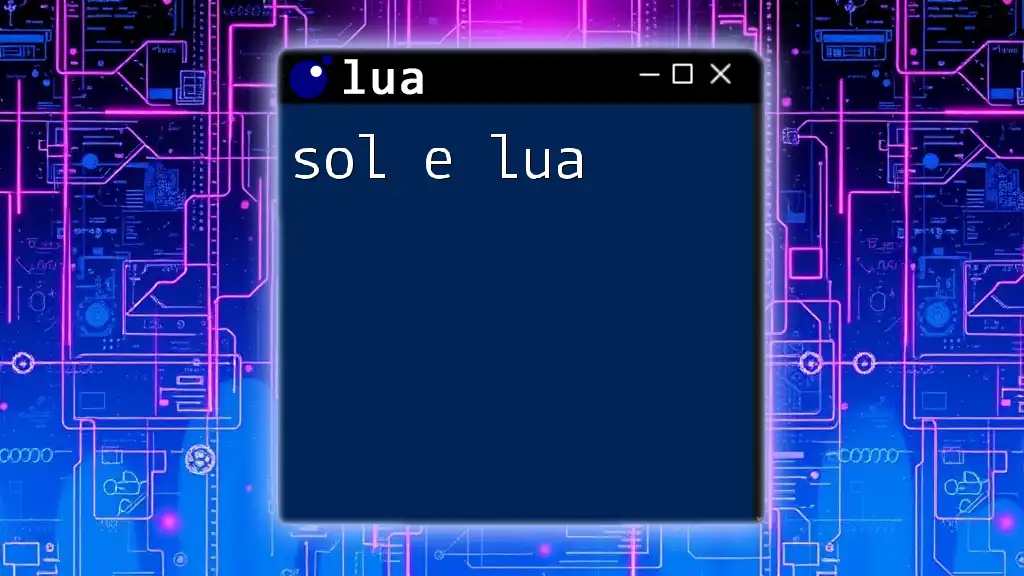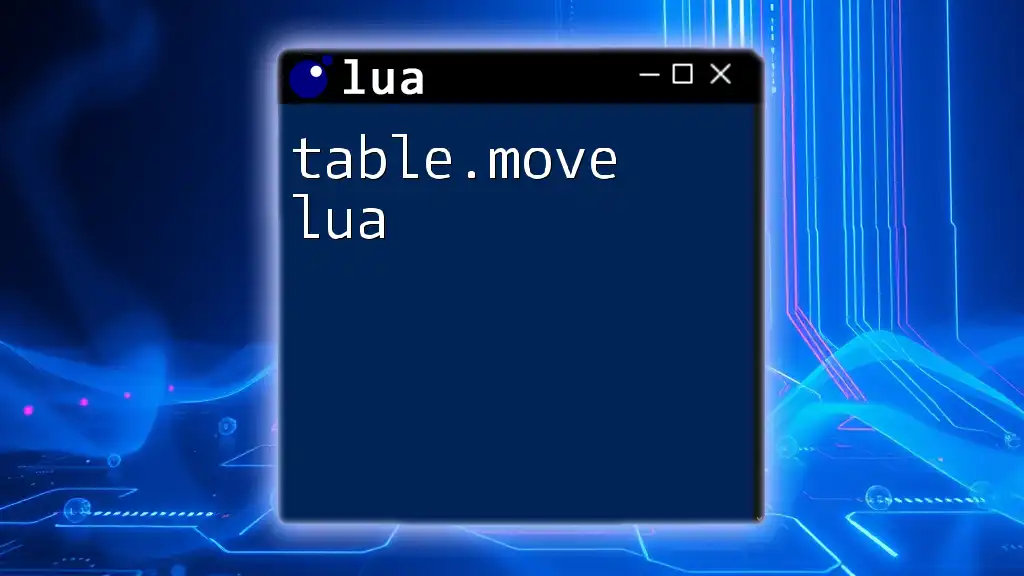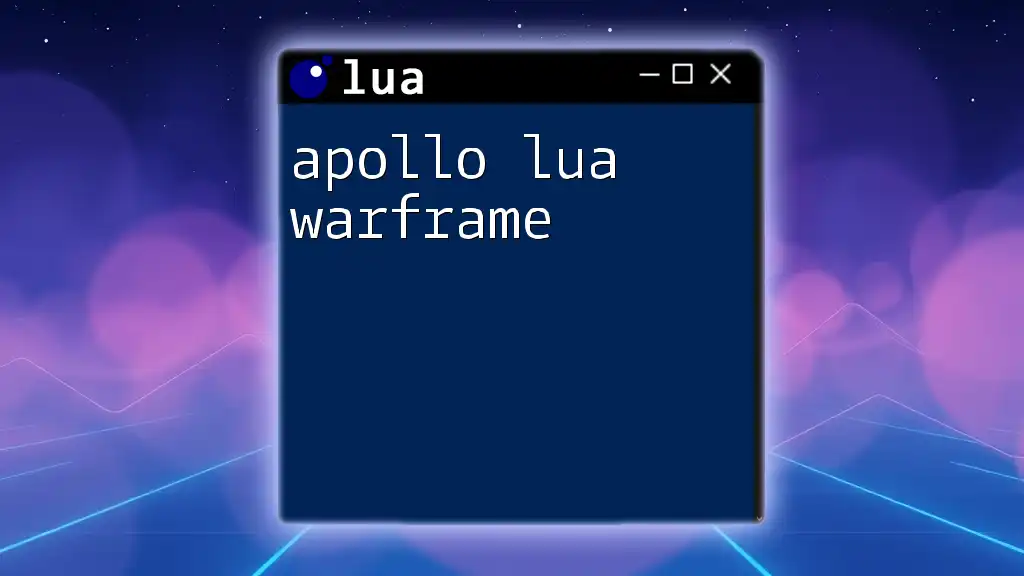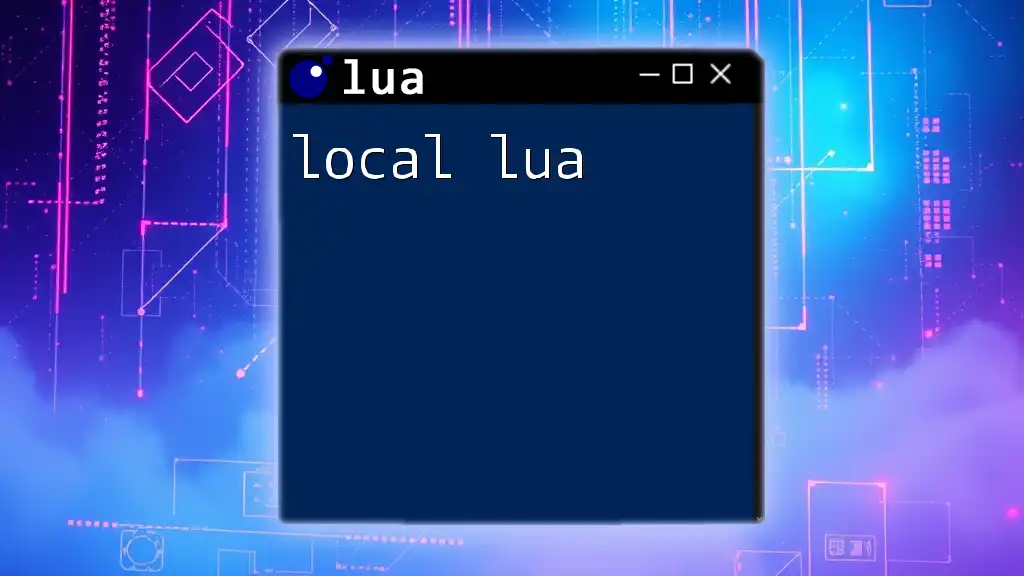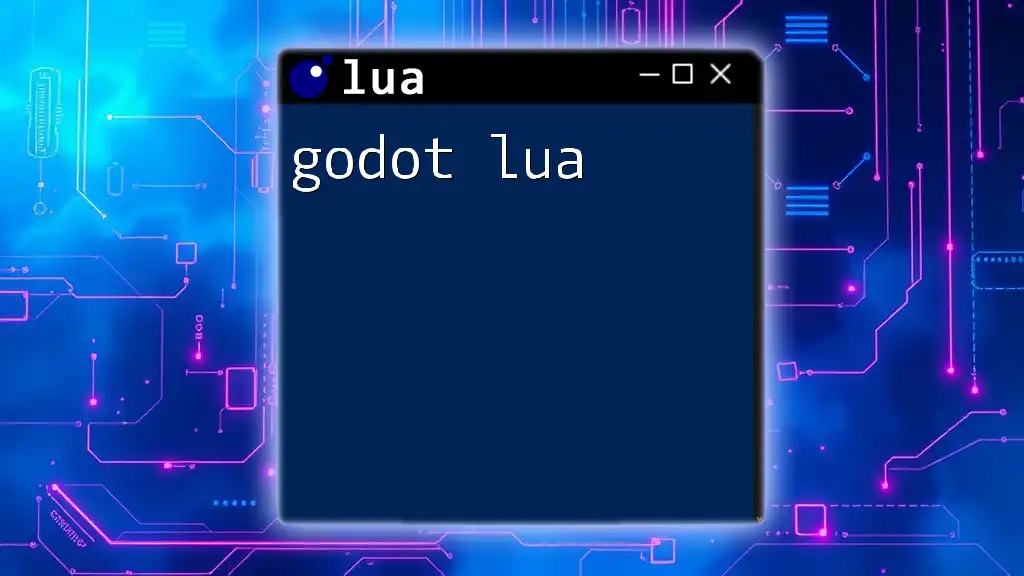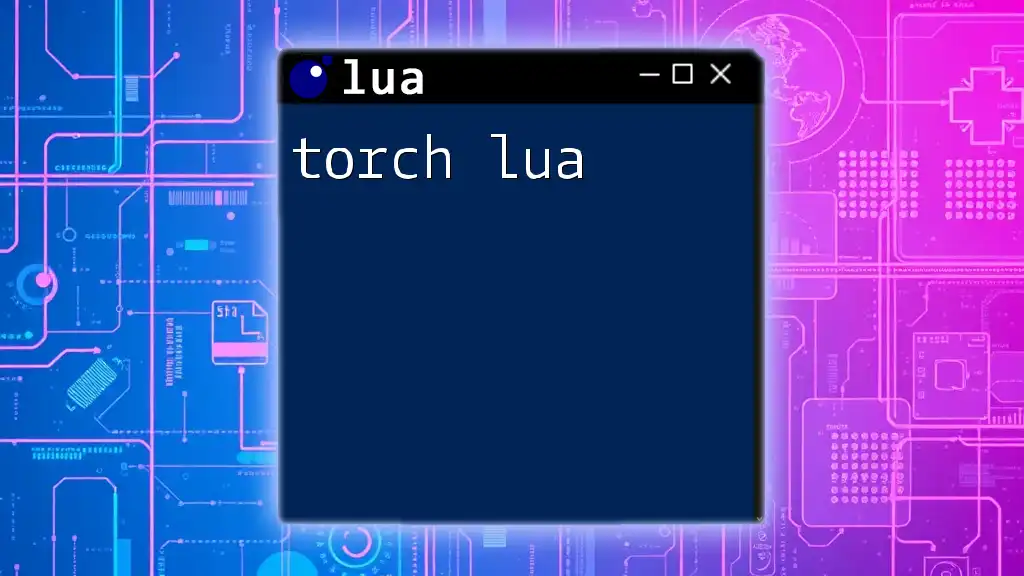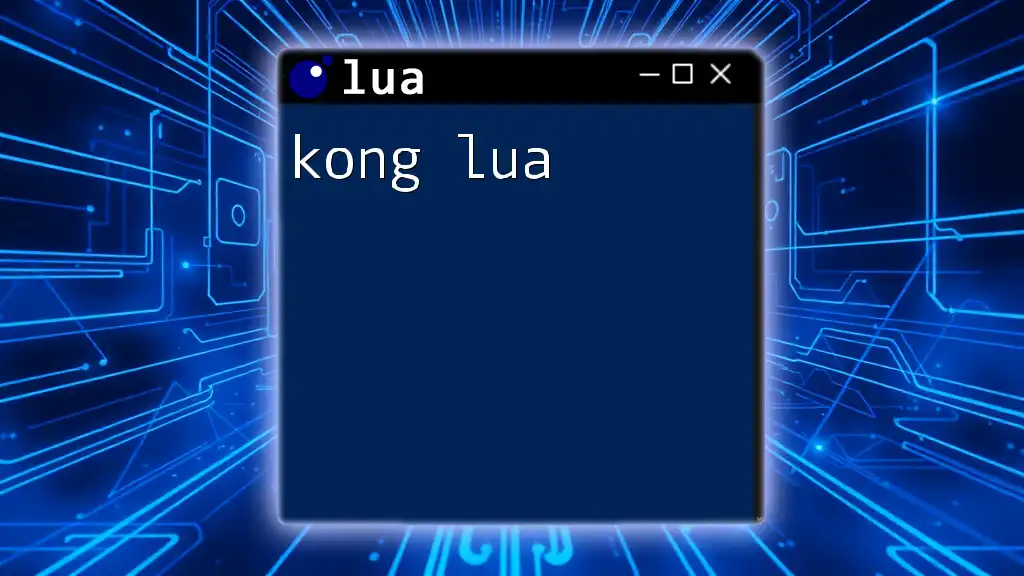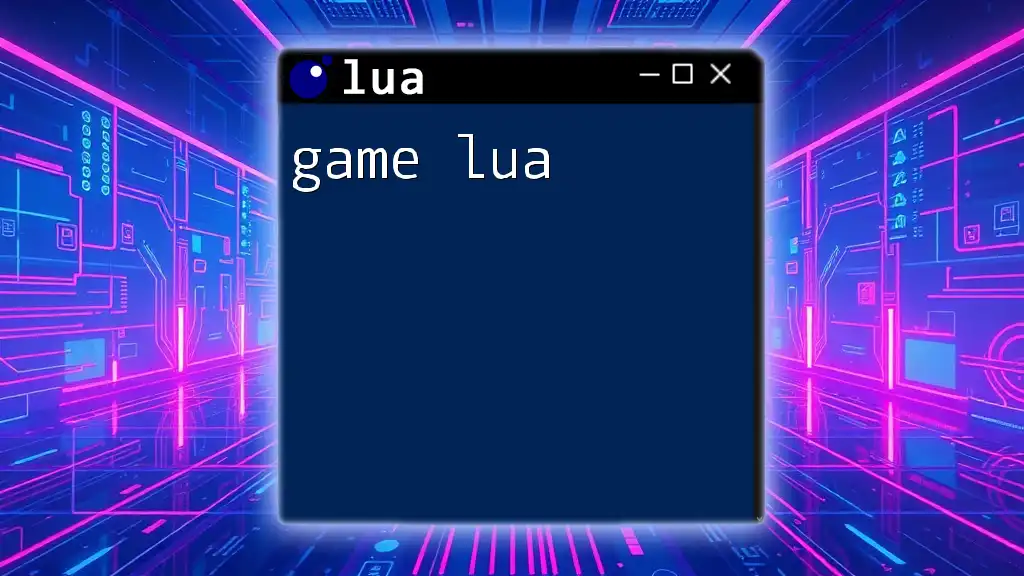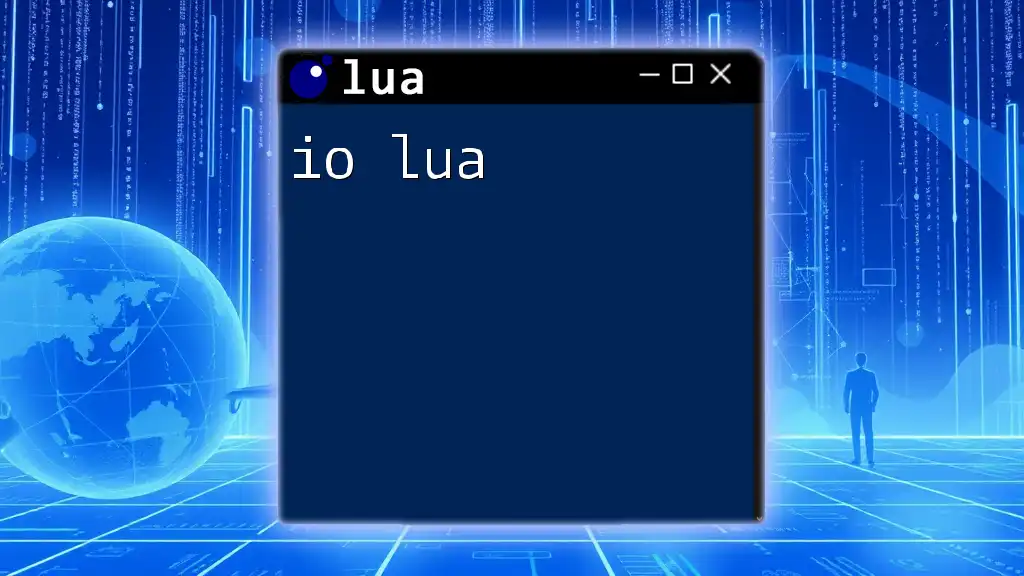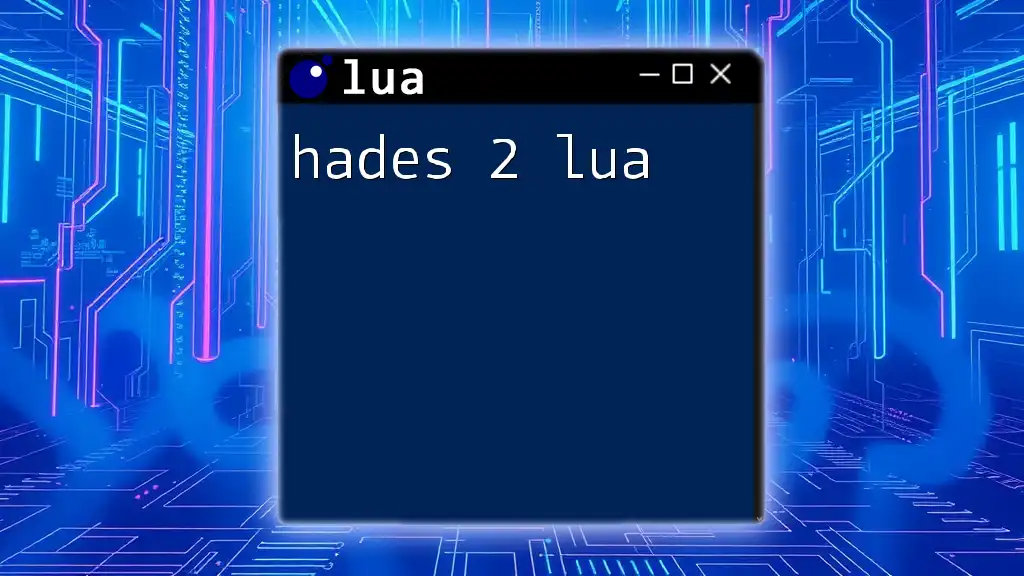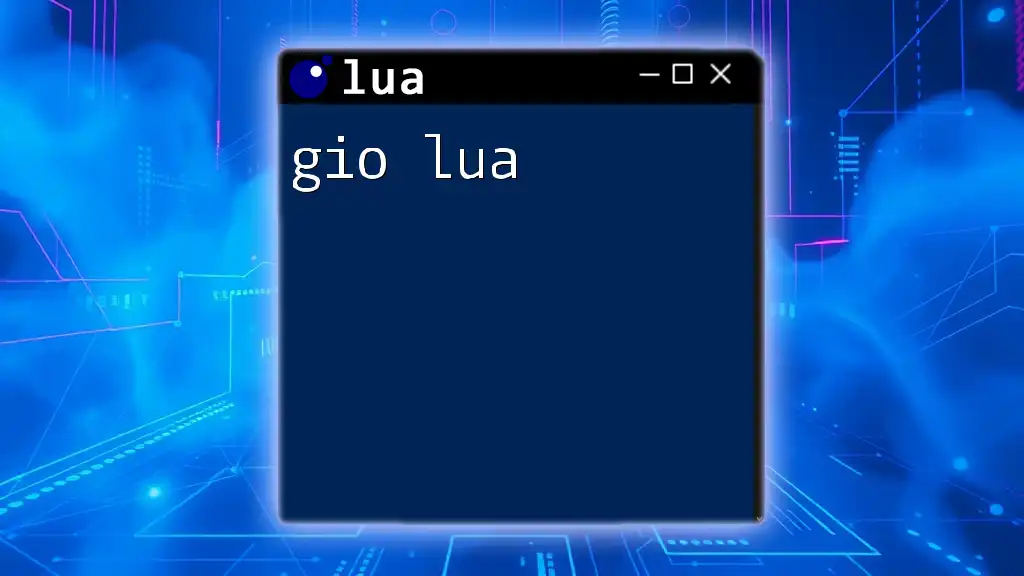"Sol e Lua" refers to the integration of Lua with the Solar2D (formerly known as Corona SDK) framework for game development, enabling developers to create interactive applications efficiently using Lua scripting.
Here's a simple code snippet in Lua for creating a basic display object in Solar2D:
local myCircle = display.newCircle(160, 240, 50)
myCircle:setFillColor(0, 0, 1) -- Sets the color to blue
Understanding "Sol e Lua"
What is Sol?
In the programming context, "Sol" refers to the sun, metaphorically representing brightness and enlightenment. Just as the sun provides light, Sol illuminates the capabilities of Lua, allowing developers to maximize their efficiency and creativity. In particular, Sol is a powerful C++ binding library that integrates seamlessly with Lua, enabling developers to expose their C++ code to Lua easily and efficiently.
What is Lua?
Lua is an incredibly lightweight, high-level programming language known for its ease of integration and flexibility. It's widely used for scripting in applications and game development due to its speed and simplicity. Key features of Lua include:
- Dynamic Typing: Variables in Lua do not require explicit data types, allowing for flexibility in coding.
- First-class Functions: Functions in Lua can be treated like any other variable, enabling powerful programming paradigms such as functional programming.
- Coroutines: Lua supports cooperative multitasking through coroutines, which allow for handling asynchronous operations efficiently.
The Relationship Between Sol and Lua
The synergy between Sol and Lua results in a robust framework where the powerful capabilities of C++ are easily harnessed through Lua's simplicity. Using Sol with Lua allows developers to create high-performance applications while retaining the ease of scripting.
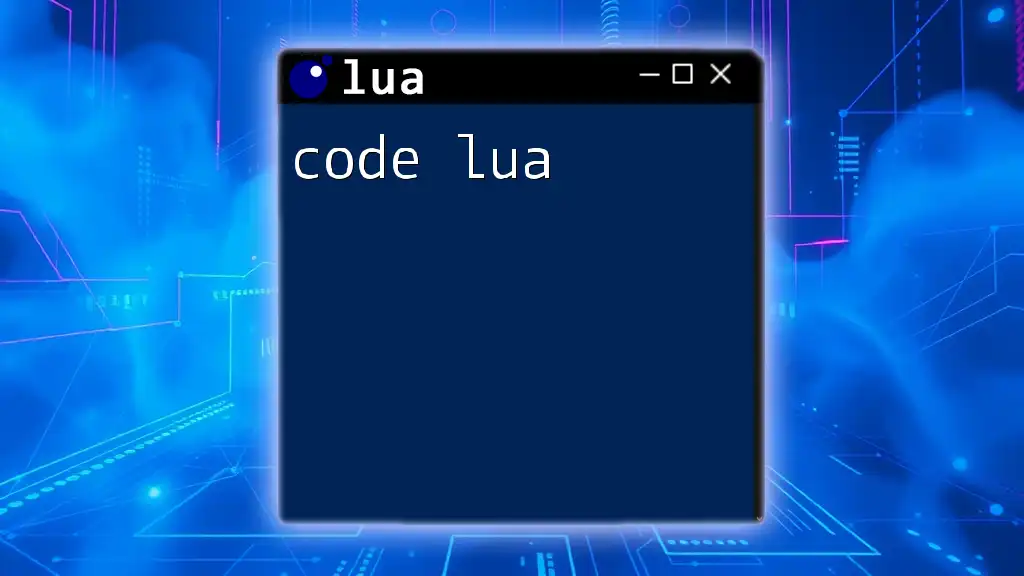
Getting Started with Sol e Lua
Setting Up Your Environment
To join the world of Sol e Lua, the first step is to set up your environment.
-
Installing Lua: Visit the [Lua website](https://www.lua.org/download.html) and download the latest version. Follow the installation instructions based on your operating system (Windows, macOS, Linux).
-
Setting Up the Sol Library:
- Clone the Sol repository from GitHub:
git clone https://github.com/ThePhD/sol2.git - Include Sol in your project by referencing the correct header files in your C++ code.
- Clone the Sol repository from GitHub:
Quick Code Snippet - Hello World in Sol e Lua
Once your environment is ready, here’s a simple “Hello World” example using Sol and Lua:
sol = require("sol")
print("Hello, Sol e Lua!")
In this snippet, we're using the `require` function to load the Sol library, followed by a print statement to display a message. This illustrates how straightforward it is to start using Sol e Lua.
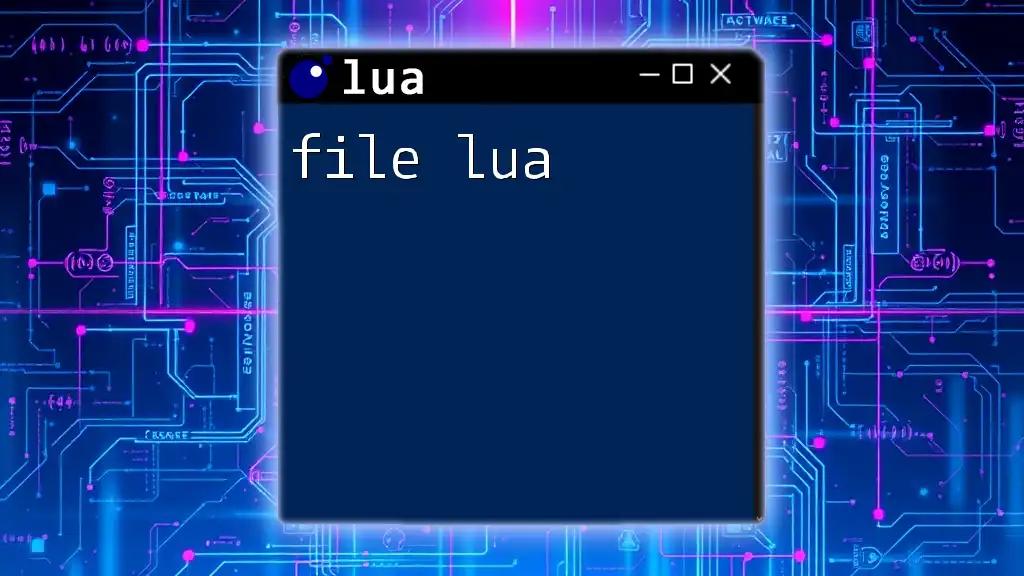
Core Concepts of Sol e Lua
Binding C++ with Lua
One of the most significant advantages of Sol is its ability to easily bind C++ libraries with Lua. This capability allows developers to utilize the high performance of C++ within the flexible environment of Lua.
Example: Binding a Simple C++ Function
Let’s walk through a straightforward example.
C++ Code Snippet
First, we define a simple C++ function that adds two integers.
int add(int a, int b) {
return a + b;
}
Next, we bind this function using Sol.
Lua Binding Code
sol::state lua;
lua.open_libraries(sol::lib::base);
lua.set_function("add", add);
In this binding process, we open the base libraries and use `set_function` to expose the C++ function `add` to the Lua environment. Now, Lua scripts can call this function and operate with C++ efficiency.
Using Sol to Manage Lua States
Lua operates on a paradigm known as states, which encapsulate the environment. Sol simplifies managing these states significantly, enhancing usability.
Example: Managing Lua States
Here's a brief example of how to create a Lua state and execute a script:
sol::state lua;
lua.script("print('Hello from Lua state!')");
In this snippet, we create a new Lua state and execute a simple script that prints a message. Sol handles the complexity of state management, allowing you to focus on the application logic.
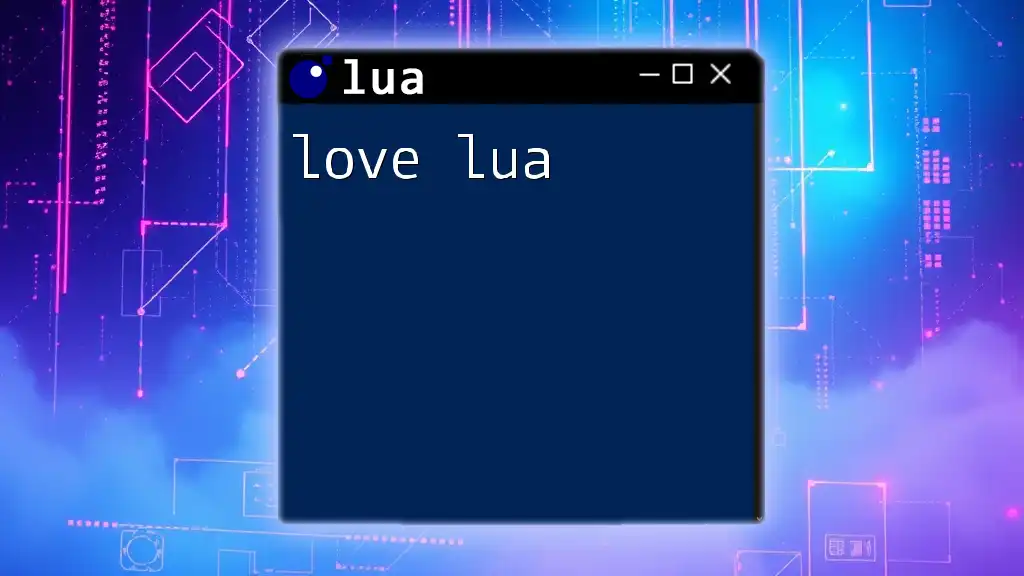
Advanced Features of Sol e Lua
Metatables and Custom Behavior
Metatables are a powerful feature of Lua that allows you to change how tables behave. Using Sol, you can manipulate metatables and implement custom behaviors in an intuitive way.
Example: Creating a Custom Metatable
Let’s consider how to implement a simple custom metatable.
local myObject = {}
setmetatable(myObject, {
__index = function(table, key)
return "Default value"
end
})
In this example, we’re creating a table named `myObject` and setting a metatable that overrides the default behavior. When accessing a non-existent key, instead of returning `nil`, it returns "Default value". This flexibility is crucial for managing complex data structures.
Exception Handling in Sol e Lua
When integrating C++ and Lua, handling exceptions is vital. Sol provides a streamlined error management process that makes debugging easier.
Example Code for Exception Handling
Here’s how to catch errors that might occur during script execution:
try {
lua.script("error('This is an error!')");
} catch (const sol::error& e) {
std::cerr << "Lua error: " << e.what() << std::endl;
}
In this snippet, we execute a Lua script that deliberately causes an error and catch the exception. The `sol::error` class provides detailed information about what went wrong, which simplifies the debugging process.
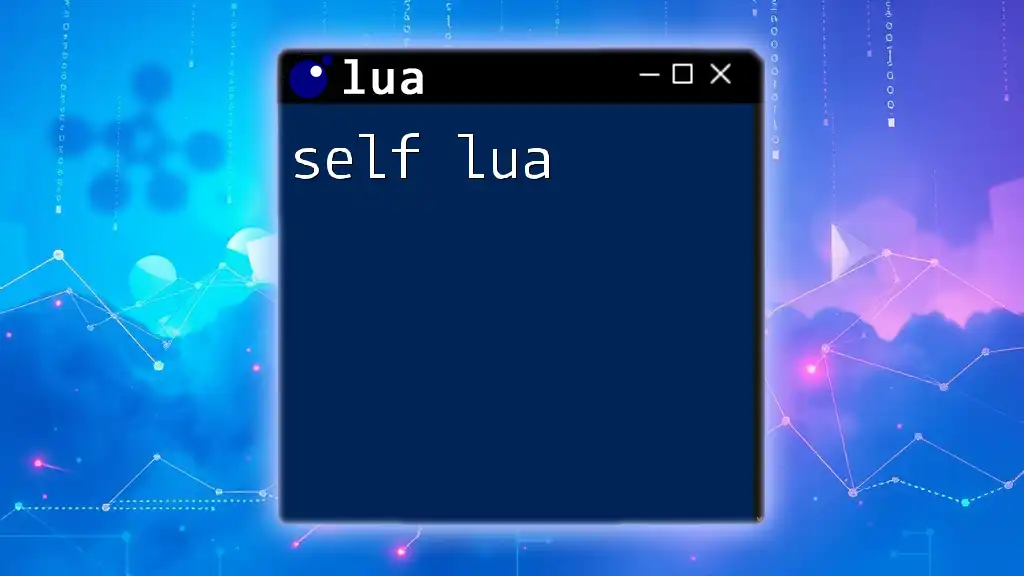
Best Practices for Using Sol e Lua
Optimizing Performance
To ensure optimal performance while using Sol e Lua:
- Limit the use of global variables: This keeps your Lua environment clean and reduces overhead.
- Release resources promptly: Ensure to clear any allocated memory that’s no longer in use to prevent memory leaks.
Structuring Your Lua Code
Organizing your Lua scripts well is essential. Here are some best practices:
- Modularization: Break your code into modules for better readability and maintainability.
- Readability: Use meaningful variable names and proper indentation to make your code easier to read.
Debugging Tips
While working with Sol e Lua, you may encounter common errors. Here are some debugging techniques:
- Verbose Logging: Incorporate logging to track errors as they happen.
- Utilizing Lua's Debug Library: This library provides functions that can help you inspect the stack and track function calls.
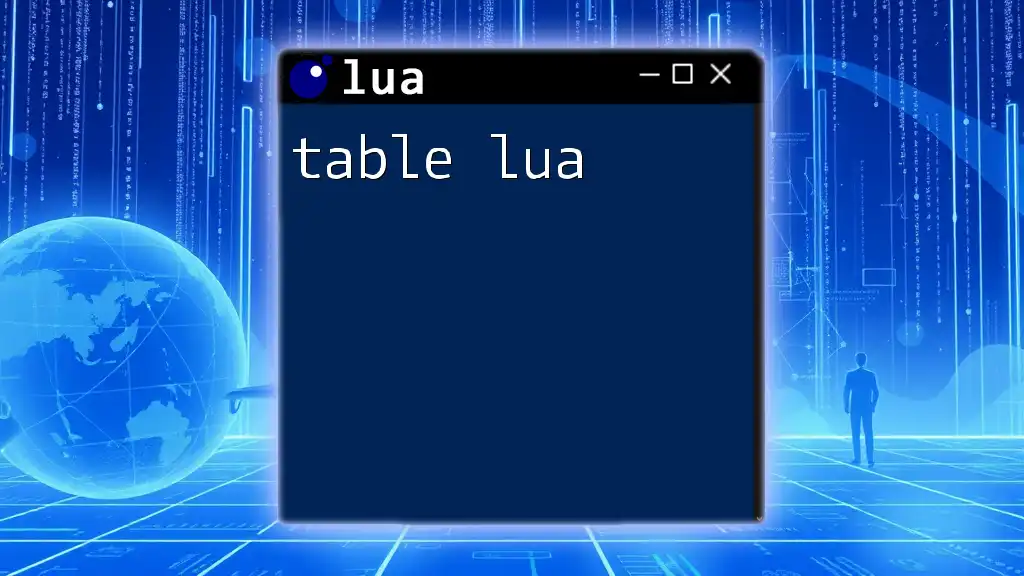
Conclusion
The integration of Sol e Lua presents a dynamic opportunity to enhance your programming capabilities. Leveraging the strengths of Lua for scripting and Sol for efficient C++ binding creates a powerful environment for developing a variety of applications. By following the concepts, examples, and best practices outlined in this guide, you can unlock the full potential of Sol and Lua in your projects.
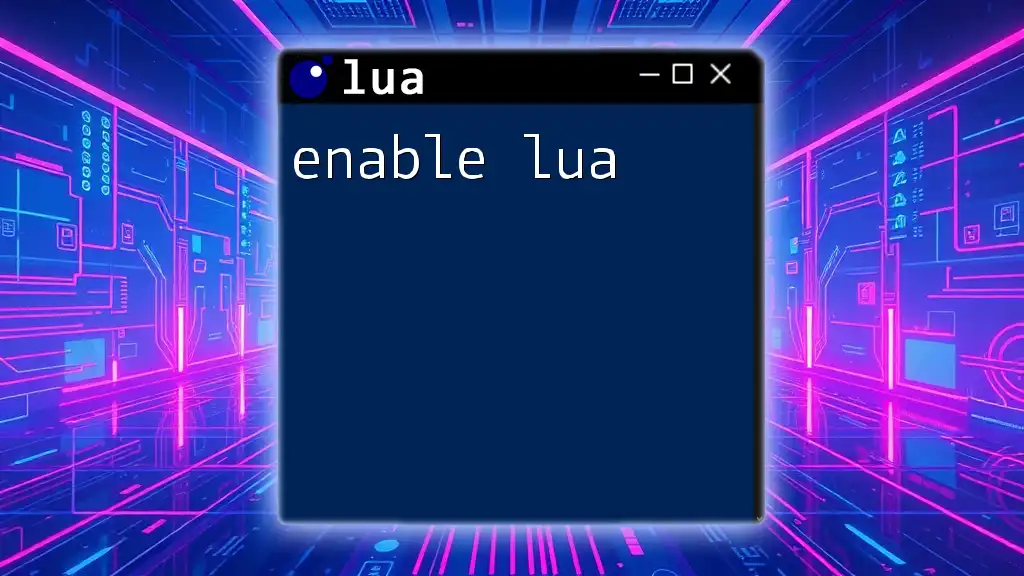
Additional Resources
To deepen your knowledge, consider exploring the following resources:
- The official Lua documentation: [Lua.org](https://www.lua.org/manual/5.1/)
- The Sol GitHub repository: [Sol2](https://github.com/ThePhD/sol2)
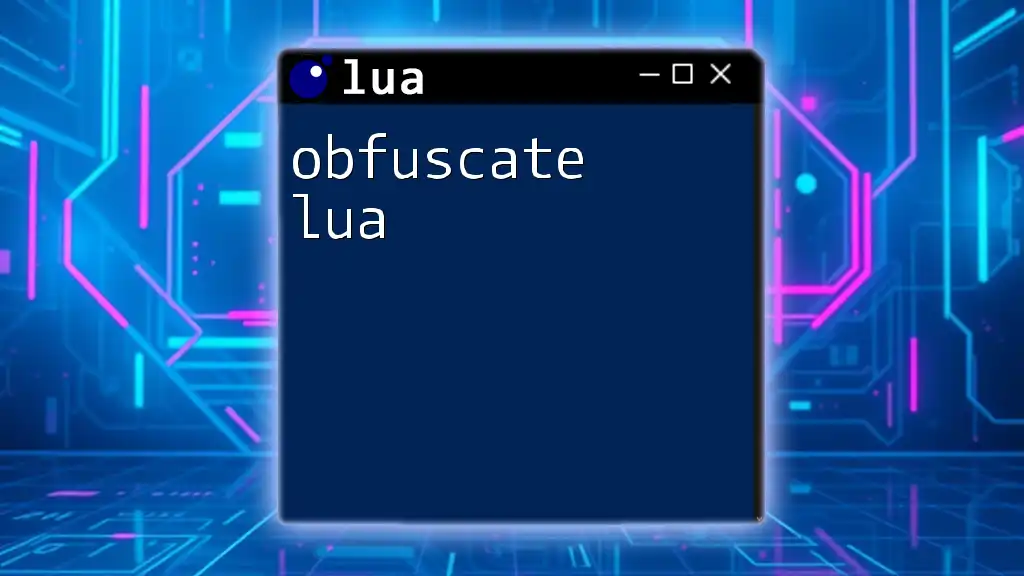
Call to Action
Now that you have a grasp on Sol e Lua, we encourage you to implement what you've learned. Experiment with your own projects, and feel free to share your experiences with us! Join our learning platform to explore even more about Lua programming and enhance your coding skills.

